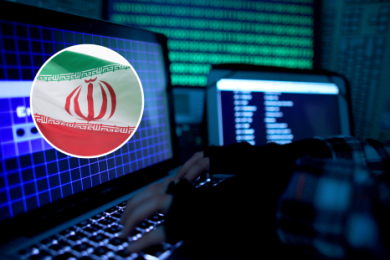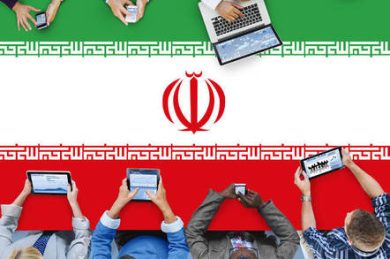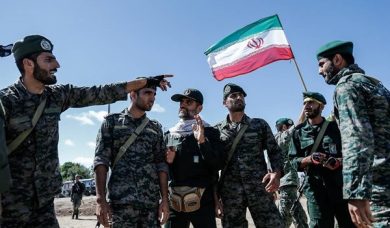Iran’s prisons, particularly Evin and Qarchak, have become notorious centers of oppression, where female political prisoners endure torture, solitary confinement, and inhumane conditions. Women who challenge the regime’s authoritarian rule, including journalists, activists, and protesters, are routinely arrested by the Islamic Revolutionary Guard Corps (IRGC) and subjected to harrowing abuses designed to break their resistance.
This report delves into:
• The IRGC’s role in detaining women activists.
• Conditions inside Iran’s prisons and documented human rights violations.
• Testimonies from former prisoners exposing systemic abuse.
• The international response and what can be done to support Iran’s female political prisoners.
1. The IRGC’s Role in Targeting Women Activists
The IRGC, Iran’s most powerful security force, plays a central role in the arrest, interrogation, and imprisonment of women who defy the regime. The tactics used against female political prisoners include:
• Surveillance and arrests for protesting, writing articles, or speaking against the government.
• Fabricated charges such as “propaganda against the state” or “acting against national security”.
• Show trials with no access to legal defense.
• Targeting family members to instill fear and prevent activism.
The goal of these arrests is to silence women and deter future dissent.
2. The Harsh Reality Inside Iran’s Prisons
A. Evin Prison: The Regime’s Torture Chamber
Located in Tehran, Evin Prison is infamous for housing political prisoners, including many women. Conditions include:
• Torture and forced confessions through beatings, electric shocks, and psychological abuse.
• Prolonged solitary confinement, sometimes for months, in dark, windowless cells.
• Sexual abuse and harassment during interrogations by IRGC officers.
• Denial of medical care, even for serious health conditions caused by torture.
B. Qarchak Prison: A Living Nightmare
Qarchak, often described as Iran’s worst women’s prison, is known for:
• Overcrowding and unsanitary conditions, leading to severe infections.
• Mixing political prisoners with violent criminals, exposing activists to constant danger.
• Lack of clean water, food, and medical facilities, resulting in malnutrition and disease.
• Routine beatings and psychological torture to force compliance.
Women imprisoned in Qarchak have called it “a slow death sentence.
3. Testimonies from Former Female Prisoners
A. Narges Mohammadi: A Voice Behind Bars
• A Nobel Peace Prize laureate and human rights activist, Mohammadi has endured multiple arrests.
• Despite torture and solitary confinement, she continues to write about human rights abuses from prison.
B. Nasrin Sotoudeh: The Human Rights Lawyer
• A prominent women’s rights lawyer, Sotoudeh has been sentenced to 38 years in prison and 148 lashes.
• She has defended women arrested for removing their hijabs and faces constant mistreatment by IRGC officials.
C. Sepideh Gholian: From Prison to Protest
• A journalist arrested for covering labor protests, Gholian has been subjected to forced confessions and severe beatings.
• After her release, she continued to expose prison abuses, leading to her rearrest.
These stories highlight the systematic cruelty women face under the IRGC’s rule.
4. The IRGC’s Tactics of Repression
A. Torture and Psychological Abuse
• Beatings, electric shocks, and sleep deprivation to break prisoners mentally and physically.
• Sexual violence as a form of humiliation and control.
• Forced confessions aired on state television to discredit activists.
B. Denial of Basic Human Rights
• Limited family visits, with some prisoners denied visits for years.
• Restricted access to lawyers, ensuring women remain isolated and vulnerable.
• Execution threats, often used to coerce silence and obedience.
The IRGC’s strategy is clear: intimidate, torture, and silence dissenters.
5. The Global Response and the Need for Action
A. International Condemnation
• Human rights organizations, including Amnesty International and Human Rights Watch, have documented and condemned Iran’s treatment of female political prisoners.
• The United Nations has called for the immediate release of many detained activists.
B. Targeted Sanctions Against the IRGC
• The United States has already designated the IRGC as a terrorist organization due to its human rights violations.
• The European Union and other governments must follow suit, imposing sanctions on IRGC officials responsible for prison abuses.
C. Providing Support to Political Prisoners
• Legal aid organizations must advocate for the release of female prisoners.
• Asylum programs should be extended to women activists forced into exile.
• Tech companies and digital rights groups must ensure secure communication tools are available to Iranian dissidents.
6. What the World Can Do to Help
1. Expose IRGC human rights violations by sharing reports, articles, and survivor testimonies.
2. Advocate for the designation of the IRGC as a terrorist organization in more countries.
3. Support Iranian activists and organizations fighting for justice.
4. Pressure global leaders to sanction Iranian officials responsible for gender-based oppression.
5. Demand UN intervention to monitor human rights abuses in Iranian prisons.
Conclusion: The Fight for Freedom Continues
Despite the torture, humiliation, and fear tactics, Iranian women refuse to be silenced. The voices of Narges Mohammadi, Nasrin Sotoudeh, and countless others prove that resistance continues, even behind prison walls.
The world cannot remain silent. Iran’s female political prisoners need global solidarity, legal intervention, and continuous pressure on the IRGC.
Join Our Newsletter!
Stay informed with the latest updates, news, and ways to take action in the fight for justice and global security. Sign up now to get updates delivered straight to your inbox!





